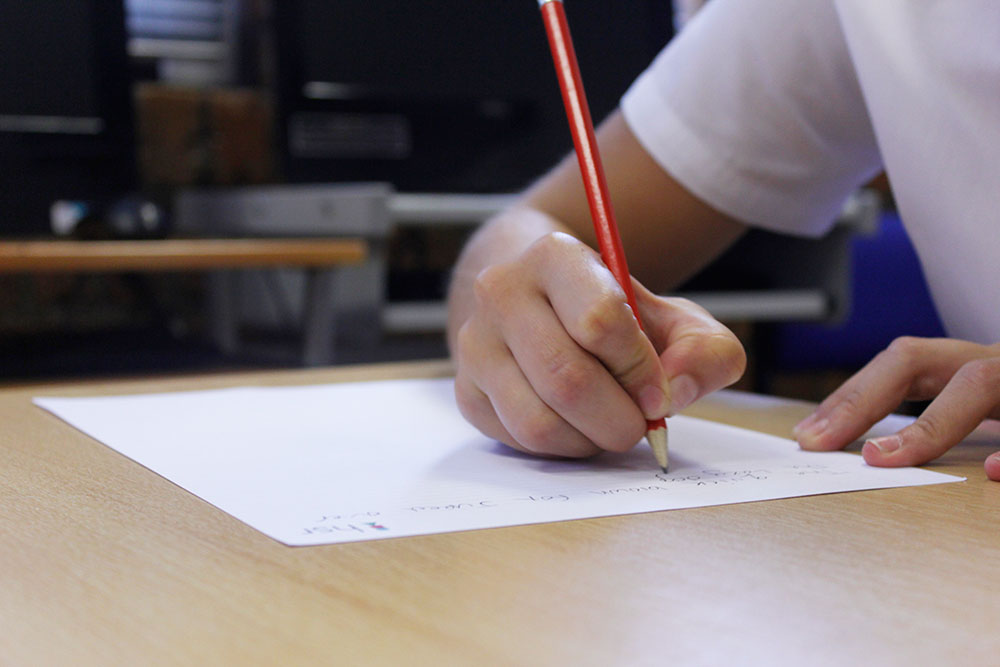

It is likely that the incidence of S.p.L.D. occurs within a normal distribution as to severity, with 4% of the population seriously affected and 6% demonstrating increasingly less challenge. It is also likely that some individuals are only slightly affected by the difficulties but are able to maximise their strengths.
Dyslexia is evident when accurate and fluent word reading and/or spelling develops very incompletely or with very great difficulty. This focuses on literacy learning at the ‘word’ level and implies that the problem is severe and persistent despite appropriate learning opportunities’ … The conclusion has to be reached through a staged process of assessment and intervention which is based on evidence.
Indications of Dyslexia vary dependent on the age of the child or young person. There are a number of indicators which may suggest that an individual has Dyslexia, including:
Dyslexia and scotopic sensitivity syndrome share similar symptoms such as words appearing jumbled or blurred on a page. Dyslexia relates to difficulties processing, recalling or expressing information.

A child having a dyslexia assessment with HSR Psychology
A Dyslexia screening is available prior to a full Dyslexia assessment and these are shorter tests related to literacy knowledge and memory and may inform a decision as to whether a full assessment would be necessary.
Before a Dyslexia diagnosis can be made, a number of evidence-based literacy intervention cycles should have happened within the education setting. This is to demonstrate whether progress has been made following targeted interventions.
Dyslexia is assessed through a combination of the following, leading to a holistic assessment.
A full educational and medical background of the child or young person is useful when assessing Dyslexia as it provides information which would not be apparent through observations or assessments. A full history includes looking at previous reports from education staff and other professionals.
An observation of the child or young person provides an insight into their usual classroom routine and allows the psychologist to assess the environment and whether it could play a part in the challenges.
Discussions with key school staff, parents or carers is beneficial to understanding the impact of the presenting difficulties. Discussions also provide information which may not have been apparent during observations or assessments.
During the cognitive assessment our educational and child psychologists may be able to suggest if there are alternative underlying conditions which could explain the symptoms if it is not Dyslexia. Cognitive assessments are generally closed to teaching staff.
A phonological awareness assessment provides information as to how the child or young person is processing sounds and words.
Academic attainment is assessed in order to establish the level of difficulty in literacy.
An early assessment of Dyslexia is recommended so interventions and strategies can be put in place at the earliest opportunity. When support is not in place, Dyslexia can lead to individuals struggling with low self-esteem and not reaching their true potential.
The specific assessments used will be chosen based on the child or young person. The main assessments we use are:
There are other assessments which may be used during a Dyslexia assessment, if these are predicted beforehand then they will be mentioned during the Initial Discussion.
After an assessment we will discuss plans for supporting Dyslexia or identified literacy difficulties. Interventions for Dyslexia can include reading, spelling and planning. Following this, a report will be written to provide information about the assessment and the recommendations.
If results suggest Dyslexia then a diagnosis could follow if there is evidence from the education setting that literacy interventions and quality first teaching have been put in place for a specific amount of time, and the pupil’s progress has been monitored over this time. We would also conduct a quick post-test to assess whether improvements have been made, as per our Dyslexia pathway.
Evidence of interventions and further input are available from the education setting. If interventions were not in place prior to the Dyslexia assessment then we may recommend specific strategies or interventions to support the child or young person’s learning in relation to their presenting literacy difficulties. After a period of time with specific interventions in place then we could review the assessment and possible Dyslexia diagnosis.
There are many benefits to receiving interventions in relation to Dyslexia as they can narrow the gap caused by the difficulties encountered. Interventions can improve phonemic awareness, spelling skills, comprehension, reading and associated skills, such as memory, organisation and planning, through providing strategies. Interventions support individuals in using their strengths to their advantage.
Our psychologists support evidence-based Dyslexia interventions in addition to bespoke interventions when necessary. If there is a particular Dyslexia or literacy intervention which you would like us to support then please contact us to see how we can help.
In addition to screenings, assessments and interventions we also offer extra psychological services in relation to Dyslexia. Examples of the psychological services we offer in relation to Dyslexia include:
The above services can be used in isolation or alongside an assessment or intervention. If there is a specific service required which is not mentioned above then please contact us to see how we can help.
A diagnosis of Dyslexia can only come from a combination of assessments and a holistic understanding of the child or young person’s background. Context is very important when assessing for Dyslexia. Examples of context we take into account include:
Through combining assessment results with a holistic approach, we will be able to identify whether there are literacy difficulties such as Dyslexia.
Dyslexia affects an individual’s ability to process information, including verbal or written information. There are strategies and techniques available to help children and young people with Dyslexia to be happy, safe and ready for life’s challenges. To book a Dyslexia assessment or to find out more, please contact us to speak to a member of our team.
Ready to get started? The next step is to speak to our team to find out more about the services we provide and how we can help. Call us on 0161 820 9229 or email office@hsrpsychology.co.uk








Once again thank you for all your help and for actually listening to me when others wouldn’t.

Jodie (Parent)
Thank you Julie once again for the excellent report, it captured the child’s needs entirely - SENDIASS, parents and me commented on how well written it was. Many thanks for your continued assistance.

SENCO
Sarah Ward was brilliant with us. Really happy with the help and support, would recommend.

Joanne (Parent)
I think the work you have been doing has been great to help break the stigma of mental health and as a fellow sufferer I know how important that is.

Mental health professional
Many thanks for Sarah W’s hard work with our students which has been very well received.

Deputy Head
Really enjoyed it and learnt lots that I can take back to school. Thank you for the quality experience.

Sarah Tindal
Thank you Julie once again for the excellent report, it captured the child’s needs entirely - SENDIASS, parents and me commented on how well written it was. Many thanks for your continued assistance.

SENCO

We provide bespoke solutions to suit all budgets and requirements for children and young people aged 0-25 in homes, education settings and the community. Our clinical, educational and child psychology services are cost effective.
To make a referral and arrange an initial discussion please complete our referral form.

Ready to get started? The next step is to speak to our team to find out more about the services we provide and how we can help. Call us on 0161 820 9229 or email office@hsrpsychology.co.uk